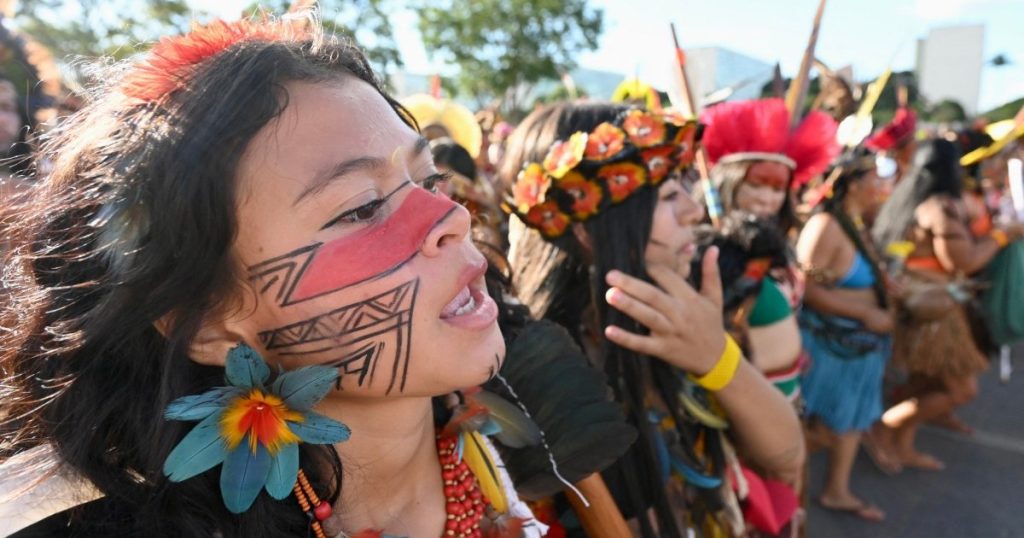Thousands of Indigenous people marched in Brazil’s capital, demanding official recognition of the lands they have lived on for centuries and protection from criminal activities like illegal mining. The protesters, carrying posters with messages like “The future is Indigenous”, made their way to Three Powers Square, where Congress, the Supreme Court, and the presidential palace are located. While some Indigenous leaders met with President Luiz Inacio Lula da Silva, others outside chanted, “Our rights are not negotiable.”
Among the issues raised by the Indigenous tribes was their opposition to a proposed 950km rail project that would transport soybeans from Mato Grosso to ports along the Tapajos River in the Amazon. Leaders from the Kayapo, Panara, and Munduruku tribes expressed concerns about deforestation and claimed they had not been properly consulted about the project. The rally marked the end of the annual Free Land Indigenous Camp, during which Indigenous groups from across the country gather to advocate for their rights.
Despite creating 10 Indigenous territories during his third term, President Lula’s administration is facing criticism for not doing enough. There are reportedly 251 pending claims for land recognition before the federal government, and Indigenous territories currently make up about 13% of Brazil’s land area, mostly in the Amazon rainforest. Lula’s slow progress in demarcating Indigenous land sharply contrasts with his predecessor, Jair Bolsonaro, who vowed not to create any additional Indigenous territories.
Indigenous demands are facing increasing opposition from the influential agribusiness sector in Brazil, which has the support of many members of Congress and several governors. The government’s use of Indigenous and environmental issues as bargaining chips has also fueled mistrust and disrespect among Indigenous communities. Marivelton Bare, representing 24 Indigenous tribes from the northwestern Amazon, expressed disappointment at the lack of meaningful action by the government and the hostile reception from Congress.
The Indigenous march in Brasilia highlighted ongoing struggles faced by Indigenous communities in Brazil, including the need for land recognition and protection from exploitation. Despite some progress in creating Indigenous territories, there are still many pending claims that need to be addressed. The conflict between Indigenous groups and powerful agribusiness interests demonstrates the challenges faced in balancing economic development with environmental and Indigenous rights. Supporters of Indigenous land rights continue to push for greater government action and respect for Indigenous communities in Brazil.













